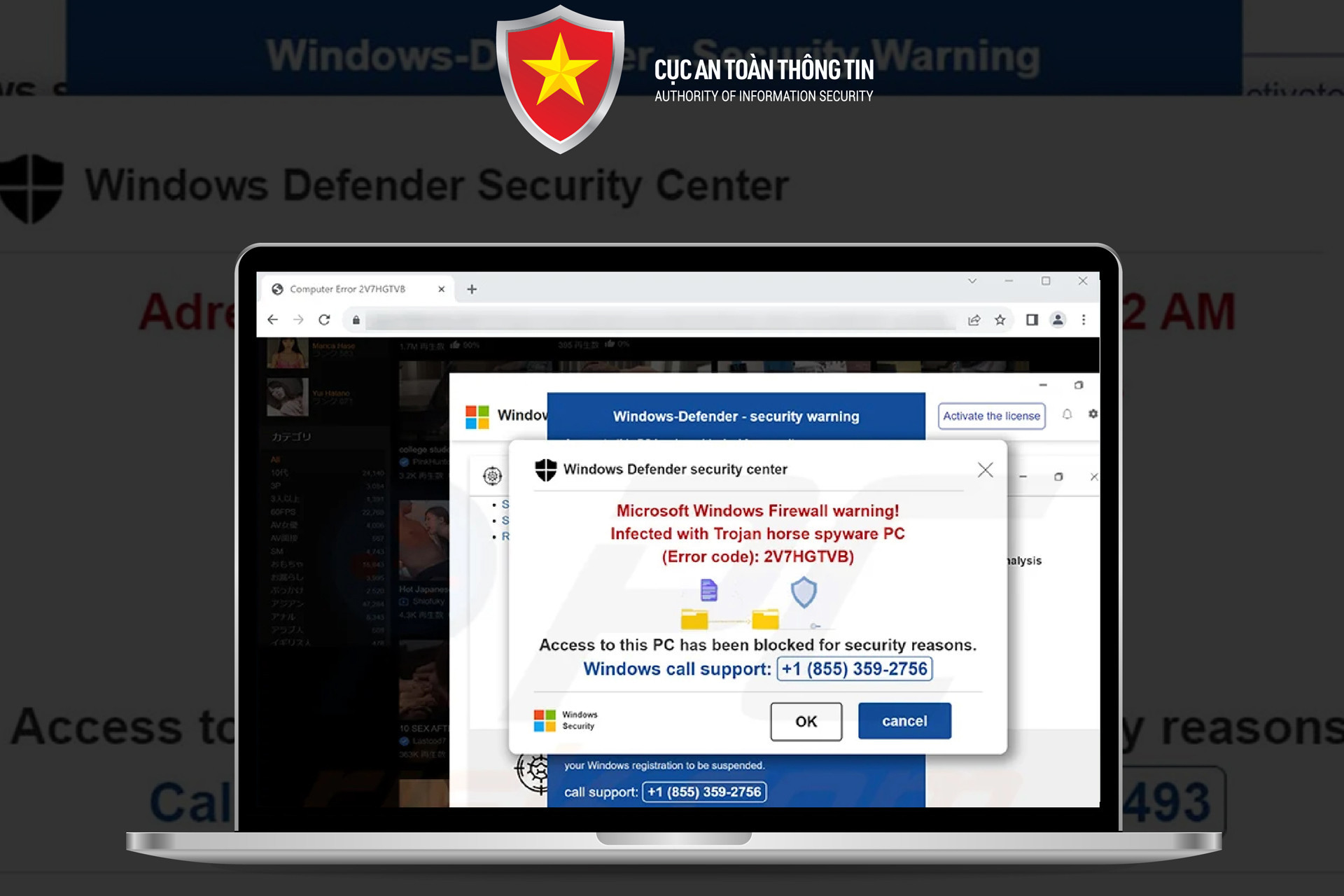
Although a new scam method using fake emails impersonating Windows security services has emerged abroad, the authorities still advise domestic users to remain vigilant. Illustrative image: NCSC
Online scams involving impersonation are becoming increasingly common in Vietnam and worldwide. Recently, authorities have issued warnings about two deceptive tactics: fake emails mimicking Windows security services and impersonation of postal service companies.
Beware of fake Windows security service emails
The National Cybersecurity Monitoring Center (NCSC), under the Ministry of Information and Communications, has shared information about a new online scam highlighted by Fox News. This scam involves fraudulent emails impersonating Windows security services.
The scammers’ objective is to steal data and gain control of victims’ computers using remote access software.
They craft fake emails designed to look like legitimate Windows security alerts, complete with official-looking logos and interfaces.
When victims open these emails, pop-up messages appear, warning them that their device access has been temporarily suspended due to security issues.
These fake alerts often include an automated voice message and alarm sounds to create urgency, pushing victims to contact a provided phone number to resolve the issue quickly.
Scammers, posing as Windows technicians, instruct victims to download remote access software such as UltraViewer to “check” their device.
Once granted access, they scan the device and steal sensitive data stored on it.
The NCSC advises caution when receiving emergency notifications via email. Users should verify such claims through official Windows support channels and avoid contacting numbers or links provided in suspicious emails.
Additionally, people are encouraged to use trusted security software and enable firewalls on their computers to detect and prevent potential threats.
If suspicious activity is encountered, individuals should promptly report it to the relevant authorities for investigation and intervention.
Fraud schemes impersonating postal companies
According to KSBY, a U.S. broadcaster, residents in California have reported receiving scam messages allegedly from the United States Postal Service (USPS). These messages claim delivery disruptions due to invalid recipient information.
In reality, these are fraudulent attempts to steal victims’ information.
Scammers send messages stating that a package cannot be delivered because of an invalid postal code on the label. They ask recipients to provide additional shipping details to resolve the issue.
The messages often include a link to a fake USPS website. Victims are directed to this site and asked to provide personal information, such as home address, name, phone number, and banking details.
NCSC experts urge vigilance when receiving messages like these.
Citizens are advised to carefully verify claims and avoid providing personal information through suspicious links or websites.
In case of any suspicion, individuals should report the activity to local authorities for assistance and to prevent further fraud.
Van Anh